Find Help
More Items From Ergsy search
-
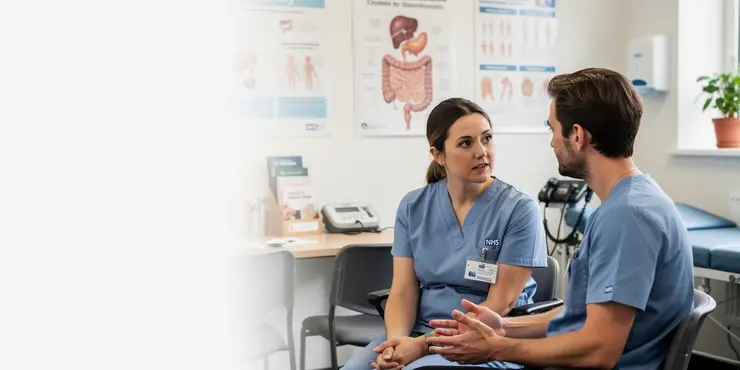
What treatments are available for Crohn's disease?
Relevance: 100%
-
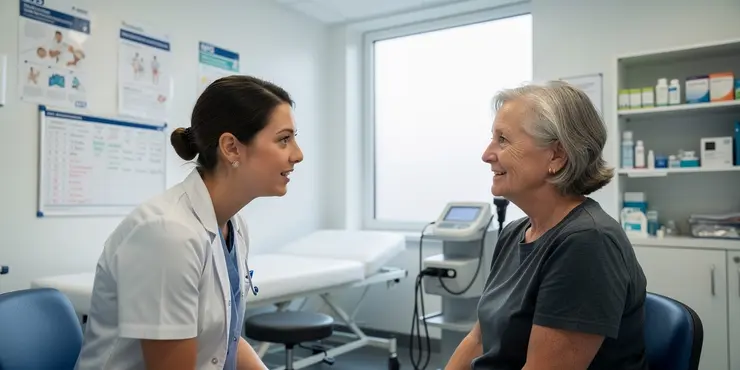
Is there a cure for Crohn's disease?
Relevance: 92%
-
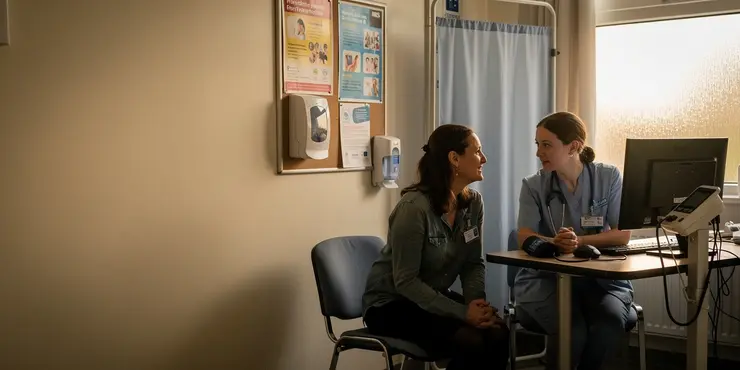
Is Crohn's disease contagious?
Relevance: 89%
-
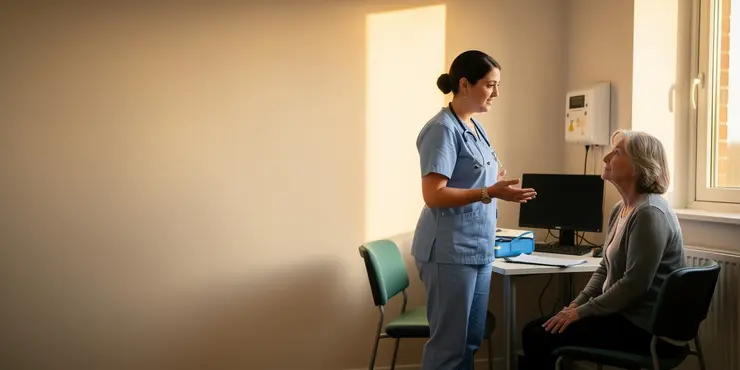
What causes Crohn's disease?
Relevance: 86%
-
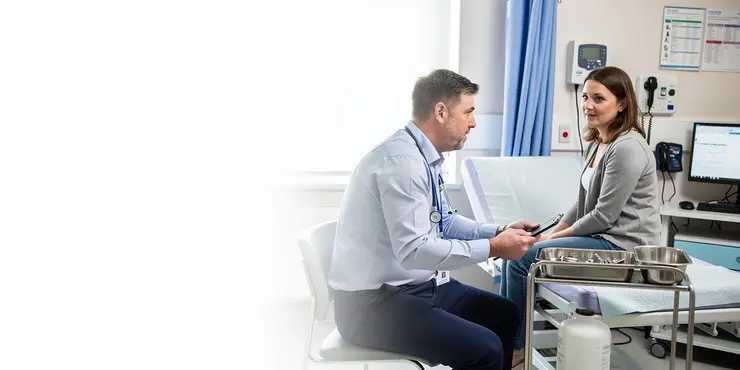
Is surgery necessary for Crohn's disease?
Relevance: 85%
-
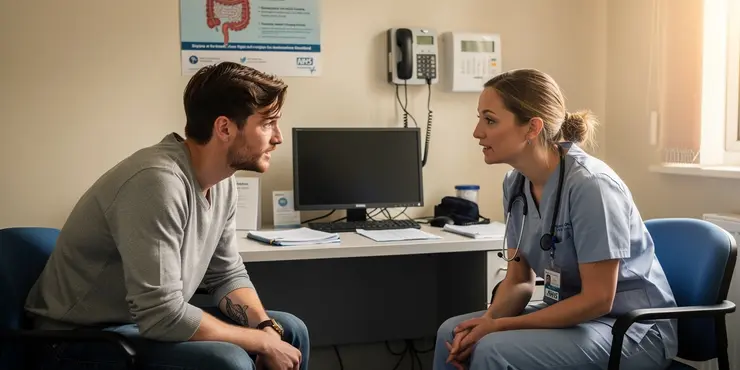
What is Crohn’s disease and how is it treated?
Relevance: 85%
-
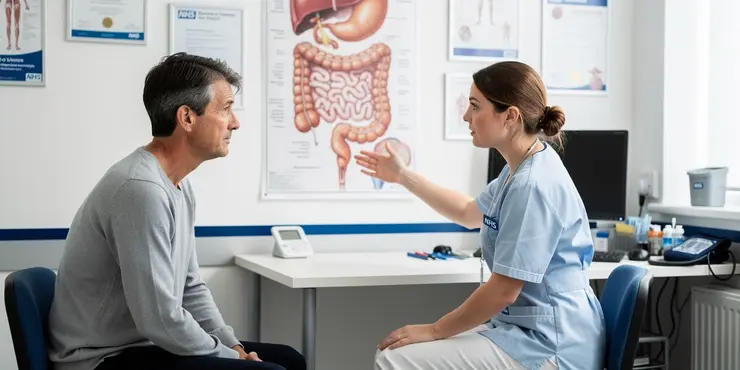
How is Crohn's disease diagnosed?
Relevance: 84%
-
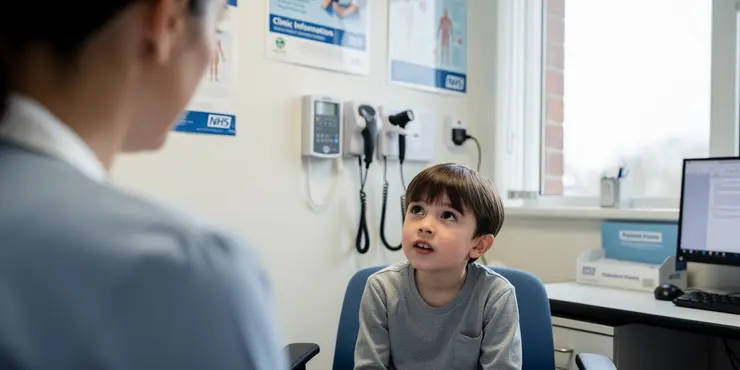
Can children develop Crohn's disease?
Relevance: 84%
-
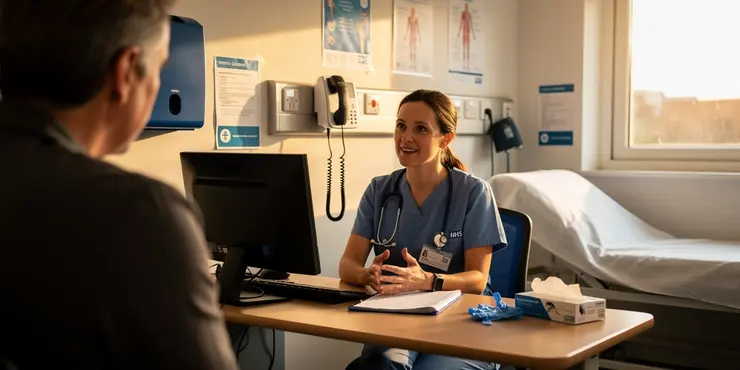
Are there any complications associated with Crohn's disease?
Relevance: 83%
-
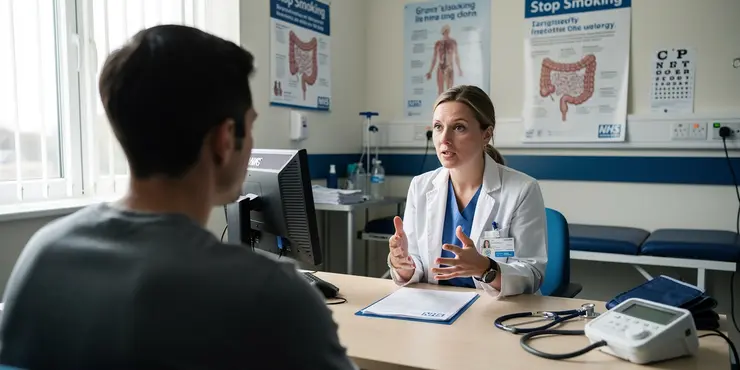
How does smoking affect Crohn's disease?
Relevance: 82%
-
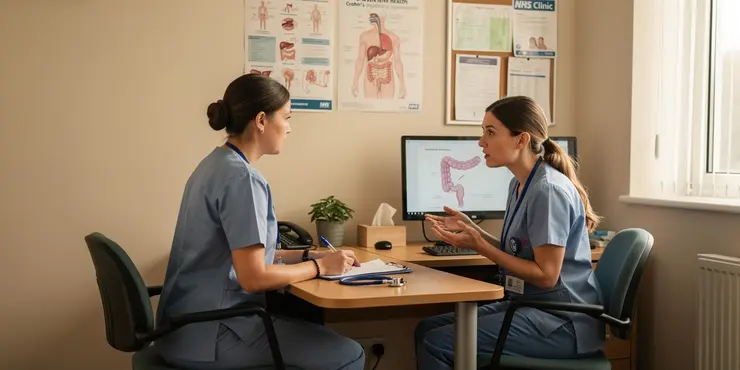
What are the common symptoms of Crohn's disease?
Relevance: 82%
-
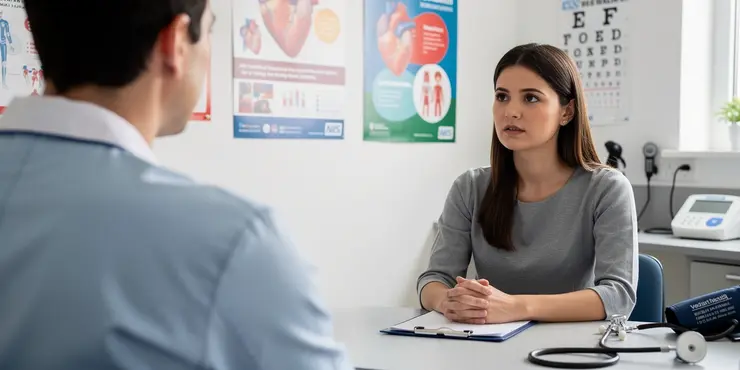
Who is at risk of developing Crohn's disease?
Relevance: 82%
-
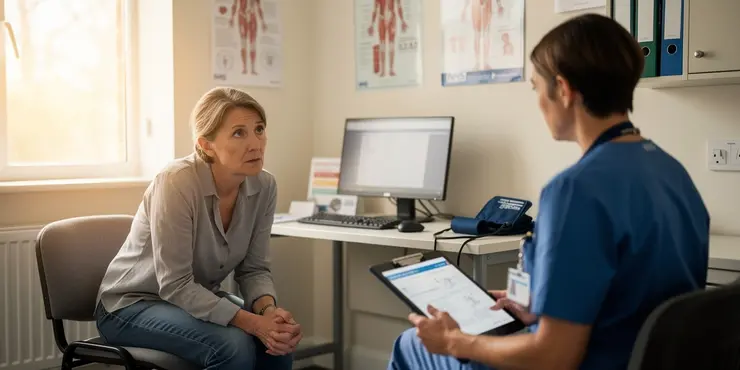
What support is available for people with Crohn's disease in the UK?
Relevance: 81%
-
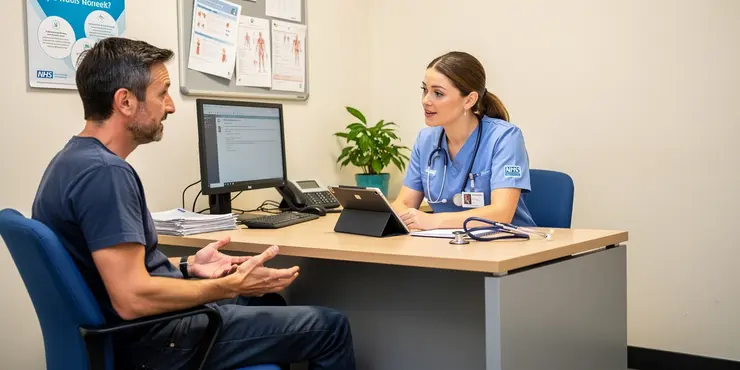
Can stress make Crohn's disease worse?
Relevance: 80%
-
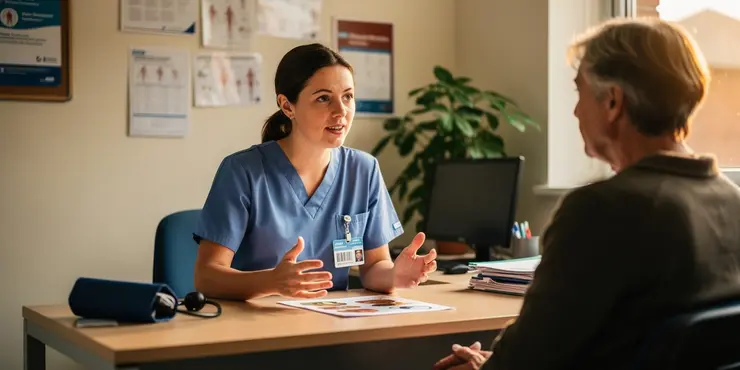
What is the best diet for Crohn’s disease?
Relevance: 79%
-
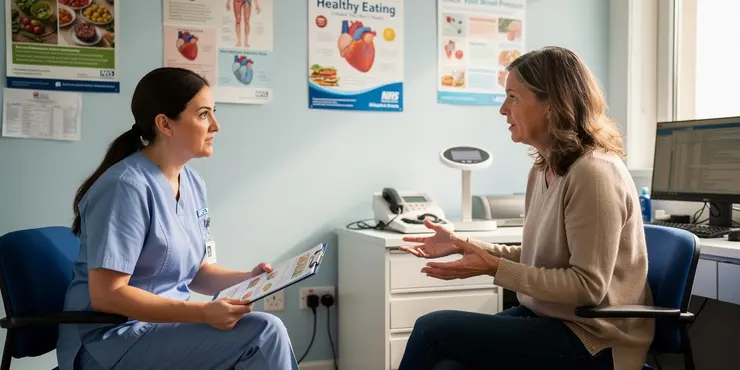
What dietary changes can help manage Crohn's disease?
Relevance: 71%
-
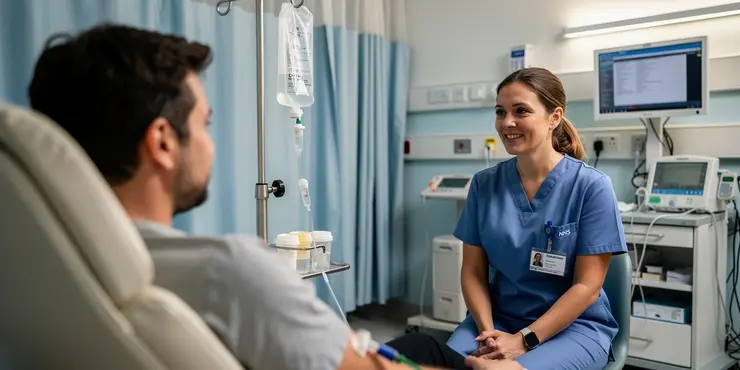
Infliximab infusion (Remicade) for Crohns Disease at Addenbrookes NHS hospital
Relevance: 70%
-
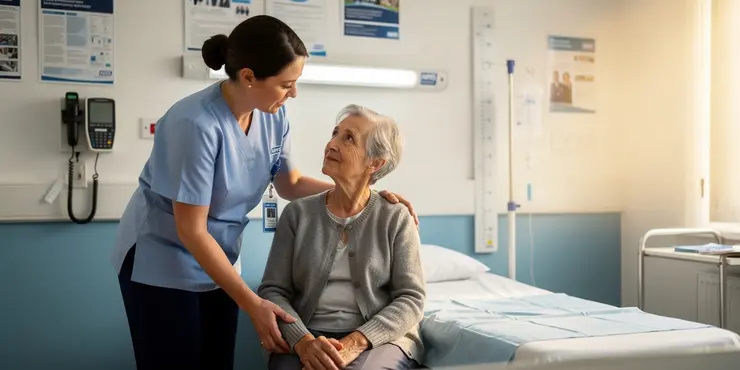
What treatments are available for Alzheimer's disease?
Relevance: 47%
-
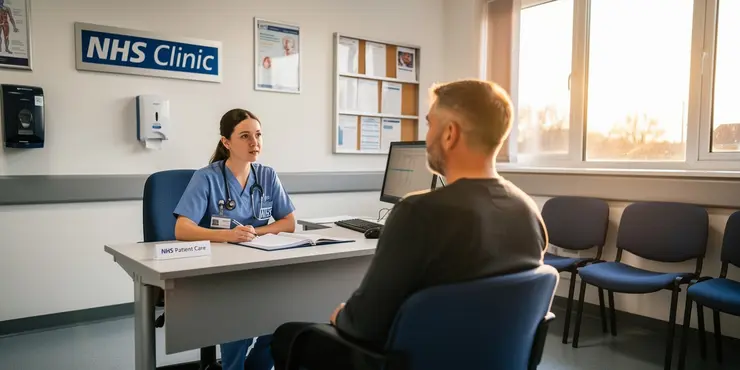
Chronic kidney disease: What are the treatments?
Relevance: 45%
-
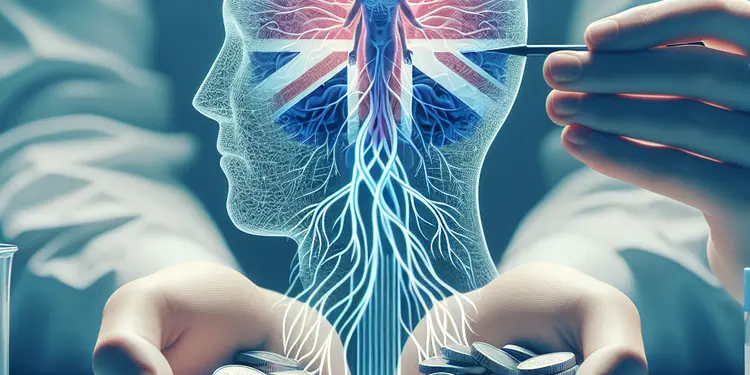
What treatments are available for motor neurone disease?
Relevance: 45%
-

Can flesh-eating disease recur after treatment?
Relevance: 44%
-

Are there treatments available for Huntington's disease?
Relevance: 40%
-
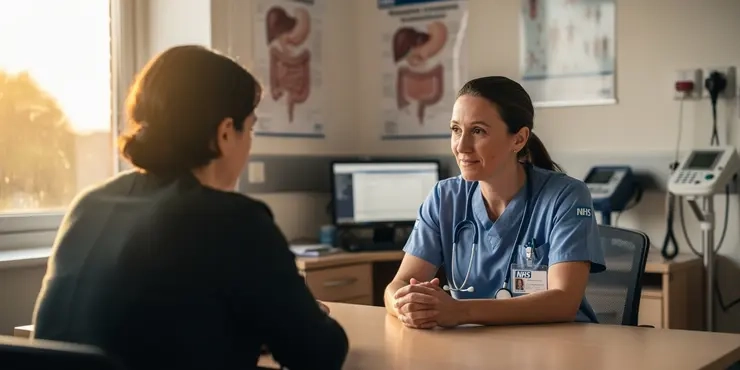
Coeliac disease
Relevance: 35%
-

Can Lyme disease be treated?
Relevance: 34%
-
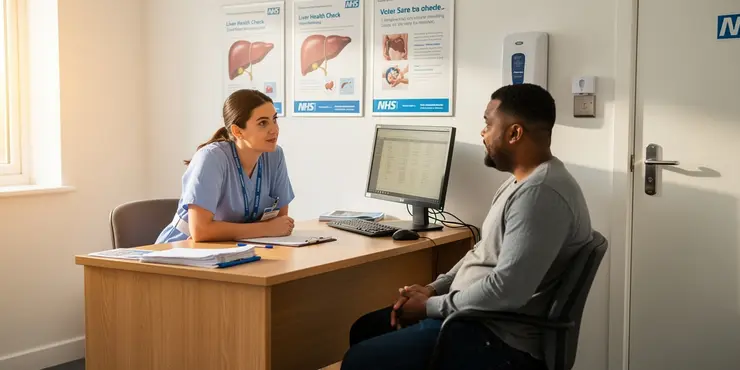
Liver disease | NHS
Relevance: 34%
-
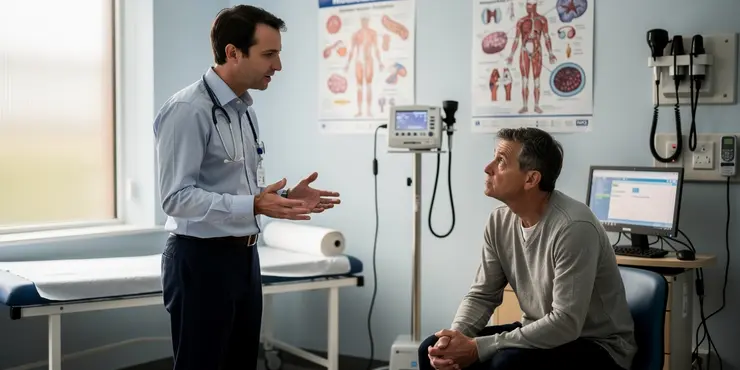
What is Mitochondrial disease?
Relevance: 34%
-
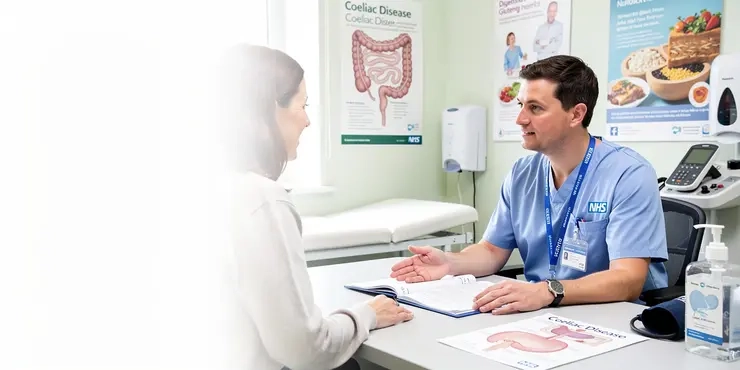
Coeliac Disease: Session 1: What is Coeliac Disease?
Relevance: 34%
-

What is Parkinson's disease?
Relevance: 34%
-

What is Huntington's disease?
Relevance: 33%
-
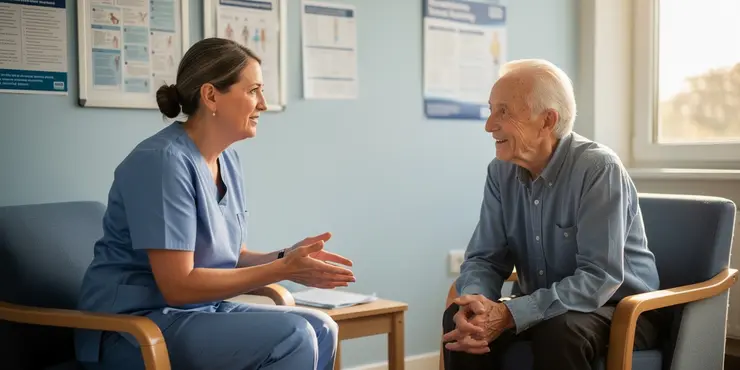
What is Alzheimer's disease?
Relevance: 33%
-

What is Lyme Disease?
Relevance: 33%
-
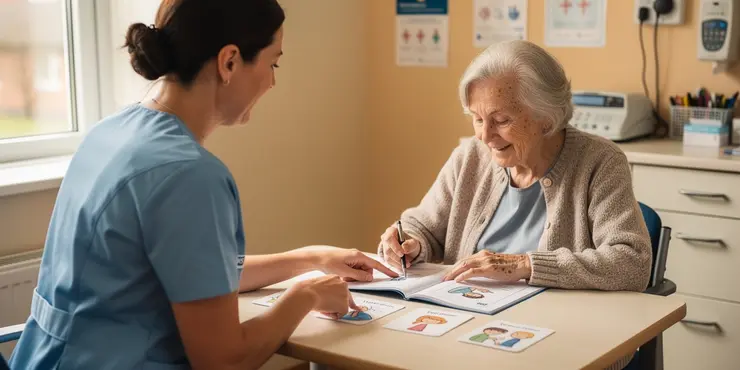
How common is Alzheimer's disease in the UK?
Relevance: 33%
-

Is there a cure for motor neurone disease?
Relevance: 33%
-

Can Huntington's disease be cured?
Relevance: 33%
-

Can flesh-eating disease be treated?
Relevance: 33%
-

What is a flesh eating disease?
Relevance: 33%
-

Is flesh-eating disease contagious?
Relevance: 32%
-
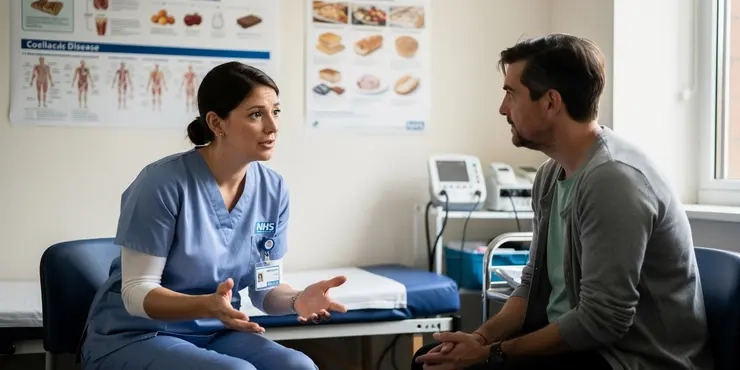
NHSGGC - What is Coeliac Disease?
Relevance: 32%
-

Is Huntington's disease fatal?
Relevance: 32%
-
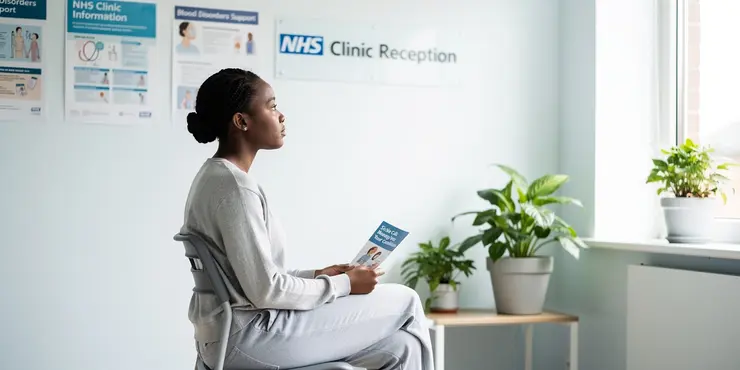
What is sickle cell disease?
Relevance: 32%
Understanding Crohn’s Disease
Crohn’s disease is a chronic inflammatory bowel disease (IBD) that affects the gastrointestinal tract. It can cause a range of symptoms, which might include abdominal pain, severe diarrhea, fatigue, weight loss, and malnutrition. In Crohn’s disease, inflammation can occur in different parts of the digestive tract, making each case unique. While its precise cause is unknown, it is believed that genetic, environmental, and immune system factors contribute to its development. It affects individuals of all ages, but it is commonly diagnosed in young adults and teenagers. In the United Kingdom, Crohn’s disease is one of the most common forms of IBD, affecting numerous individuals and impacting their quality of life.
Symptoms and Diagnosis
The symptoms of Crohn’s disease can vary widely between individuals and can change over time. Common symptoms include persistent diarrhea, abdominal cramping, and rectal bleeding. Some people may experience more severe symptoms such as joint pain, skin rashes, and eye inflammation. Due to its diverse symptoms, Crohn’s disease can be challenging to diagnose. Healthcare professionals often use a combination of endoscopies, imaging studies like MRI or CT scans, and sometimes biopsies to confirm a diagnosis. In the UK, early diagnosis and treatment are critical in managing the condition effectively and reducing its long-term implications.
Treatment Options
Treating Crohn’s disease generally focuses on managing symptoms rather than providing a cure. Treatment is personalized and may involve medication, lifestyle changes, and possibly surgery. Medications such as aminosalicylates, corticosteroids, immunomodulators, and biologics are commonly prescribed to reduce inflammation and suppress the immune response. For those with more severe cases, surgery to remove affected portions of the bowel might be necessary. Diet and nutrition adjustments are also important, as some foods might exacerbate symptoms. In the United Kingdom, patients may work closely with gastroenterologists, dietitians, and other healthcare providers to create a comprehensive management plan. Patients can usually access support through NHS services and Crohn’s-specific support groups that offer guidance and community connections.
Lifestyle and Ongoing Management
Effective management of Crohn’s disease often involves regular medical care and monitoring. Patients are encouraged to maintain a healthy lifestyle, manage stress, and adhere to prescribed treatments. Smoking cessation is especially important, as smoking can worsen the symptoms. Regular follow-ups with healthcare providers are critical to monitor disease progression and make necessary adjustments to the treatment plan. In the UK, people living with Crohn’s disease are offered support through patient advocacy groups which help in raising awareness and provide educational resources. Access to counselling and mental health support can also be beneficial, as living with a chronic condition may have emotional and psychological impacts.
Understanding Crohn’s Disease
Crohn’s disease is a chronic inflammatory bowel disease (IBD) that primarily affects the gastrointestinal tract. In the United Kingdom, Crohn’s disease can have significant impacts on quality of life, and it is estimated that over 115,000 people live with the condition. Crohn's disease can affect any part of the gastrointestinal tract from the mouth to the anus, but it most commonly impacts the end of the small intestine and the beginning of the colon.
Symptoms of Crohn’s Disease
The symptoms of Crohn’s disease can vary widely from person to person and may change over time. Common symptoms include persistent diarrhoea, abdominal pain, fatigue, unexplained weight loss, and malnutrition. Some people may experience more severe symptoms, including fever, rectal bleeding, and joint pain. These symptoms can fluctuate, with periods of remission and flare-ups.
Causes and Risk Factors
The exact cause of Crohn’s disease is unknown, but it is believed to result from a combination of genetic, environmental, and immune system factors. The disease is more common among people with a family history of IBD. It is thought that Crohn’s disease may involve an overactive immune response to normal gut bacteria in genetically susceptible individuals.
Treatment Options for Crohn’s Disease
While there is no cure for Crohn's disease, there are effective treatments available to manage and reduce symptoms, and to maintain remission. In the UK, treatment plans typically include medication, dietary changes, and sometimes surgery. The main types of medications used include:
- Aminosalicylates: These are anti-inflammatory drugs often used for mild-to-moderate symptoms.
- Corticosteroids: Used to control flare-ups, but not intended for long-term use due to potential side effects.
- Immunosuppressants: Help reduce inflammation by targeting the immune system.
- Biologic therapies: Target specific proteins involved in inflammation.
Nutritional support, including vitamin and mineral supplements, can also be an important component of managing Crohn's disease. In more severe cases, or when medications are not effective, surgery may be necessary to remove damaged portions of the intestine.
Patients in the UK are typically managed by specialists in gastroenterology, with support from dietitians and other healthcare providers. It is important for individuals with Crohn’s disease to receive ongoing medical care and support to effectively manage their condition and improve their quality of life.
Understanding Crohn’s Disease
Crohn’s disease is a long-lasting illness that affects the tummy and intestines. It can make a person feel tummy pain, have bad diarrhea, feel very tired, lose weight, and not get enough nutrients. In Crohn’s disease, parts of the tummy and intestine can get swollen. This can be different for each person. We don’t know exactly what causes Crohn’s disease, but it might be linked to genes, the environment, and how the body fights germs. People of any age can have Crohn’s disease, but it is often found in young adults and teenagers. In the UK, many people have Crohn’s disease, and it affects their daily life.
Symptoms and Diagnosis
People with Crohn’s disease can have different symptoms, and these can change. Common signs are having diarrhea that doesn’t stop, tummy cramps, and bleeding from the bottom. Some people might also have joint pain, skin rashes, or red eyes. Because there are many different symptoms, it can be hard for doctors to know if someone has Crohn’s disease. Doctors use special tests, like looking inside the tummy with a camera, taking pictures with MRI or CT scans, and sometimes taking a small piece of the intestine to look at it closely. In the UK, finding Crohn’s disease early and getting treatment is very important to help manage it better.
Treatment Options
Crohn’s disease treatment helps control symptoms, but it does not cure the illness. Treatment is different for each person and might include medicine, changing what you eat, and sometimes surgery. Doctors might give medicines to help reduce swelling and calm the body’s reaction. For serious cases, doctors might need to remove the bad part of the intestines. Eating the right foods is important too, as some foods can make symptoms worse. In the UK, people with Crohn’s disease can work with tummy doctors, food experts, and other health helpers to make a plan that works for them. You can also get help from NHS services and support groups that focus on Crohn’s disease.
Lifestyle and Ongoing Management
To manage Crohn’s disease well, it is important to see doctors regularly and keep an eye on how the body is doing. Keeping a healthy lifestyle, reducing stress, and following the doctor’s advice is important. Not smoking is very important because smoking can make symptoms worse. Regular visits to doctors help to see how the illness is going and to change the care plan if needed. In the UK, people with Crohn’s disease can get help from groups that teach more about the illness and connect with others. Talking to counselors or joining support groups can be helpful because living with Crohn’s disease can be hard on feelings and emotions.
Understanding Crohn’s Disease
Crohn’s disease is a long-lasting problem that causes swelling in the gut. In the UK, many people have Crohn’s disease. Over 115,000 people live with it. This disease can hurt any part of the gut, from the mouth to the bum. It often affects the end of the small gut and the start of the large gut (colon).
Symptoms of Crohn’s Disease
The symptoms of Crohn’s disease can be different for each person. They might change over time too. Common signs are having diarrhoea that does not go away, tummy pain, feeling very tired, losing weight without trying, and not getting enough vitamins. Some people might feel worse, with fever, bleeding from the bottom, and pain in their joints. The symptoms can come and go, with times when you feel better and times when you feel worse.
Causes and Risk Factors
Doctors do not know exactly what causes Crohn’s disease. They think it happens because of things like genes, the environment, and how the body fights germs. People with family members who have similar gut problems are more likely to have it. It might happen because the body reacts too much to germs in the gut in people who have certain genes.
Treatment Options for Crohn’s Disease
There is no cure for Crohn’s disease, but treatments can help make symptoms better and make bad times happen less often. In the UK, people usually get treatments that include medicines, food changes, and sometimes surgery. The main medicines are:
- Aminosalicylates: These help with swelling and are used when symptoms are not too bad.
- Corticosteroids: These are used to help during bad times, but not for a long time because they can cause problems.
- Immunosuppressants: These help with swelling by calming the body’s reaction.
- Biologic therapies: These target certain parts of what causes swelling.
Eating healthy foods and taking vitamins might also help. In serious cases, or when medicines do not work, surgery might be needed to take away the hurt part of the gut.
People in the UK often see doctors who know a lot about the gut. They also get help from food experts. It is important for people with Crohn’s disease to have regular doctor visits and support to handle their illness and feel better.
Frequently Asked Questions
What is Crohn's disease?
Crohn's disease is a type of inflammatory bowel disease (IBD) that affects the gastrointestinal tract, causing inflammation that can lead to a variety of symptoms.
What are the common symptoms of Crohn's disease?
Common symptoms include abdominal pain, diarrhoea, fatigue, weight loss, and malnutrition. Some people may also experience fever and anemia.
How is Crohn's disease diagnosed?
Crohn's disease is diagnosed through a combination of tests including blood tests, stool tests, colonoscopy, endoscopy, and imaging tests like MRI or CT scans.
What causes Crohn's disease?
The exact cause of Crohn's disease is unknown. However, it is believed to result from a combination of genetic, environmental, and immune factors.
Is there a cure for Crohn's disease?
No, there is no cure for Crohn's disease currently, but there are effective treatments available to manage the symptoms and induce remission.
What treatments are available for Crohn's disease?
Treatment options include medication (such as anti-inflammatory drugs, immune system suppressors, biologics), dietary changes, and sometimes surgery.
What dietary changes can help manage Crohn's disease?
Avoiding trigger foods, maintaining a balanced diet, and staying hydrated are important. Some patients may benefit from a low-fibre, low-residue diet during flare-ups.
Who is at risk of developing Crohn's disease?
Crohn's disease can affect anyone but is more common in people between the ages of 15 and 35. Family history, smoking, and certain medications can increase risk.
How does smoking affect Crohn's disease?
Smoking is known to exacerbate Crohn's disease, increasing the severity of symptoms and the likelihood of complications.
Can stress make Crohn's disease worse?
While stress does not cause Crohn's disease, it can exacerbate symptoms and lead to flare-ups in some individuals.
Are there any complications associated with Crohn's disease?
Yes, complications can include bowel obstructions, ulcers, fistulas, malnutrition, and an increased risk of colon cancer.
Is surgery necessary for Crohn's disease?
Surgery may be necessary if medications are not effective, or to manage complications such as strictures or fistulas.
Can children develop Crohn's disease?
Yes, Crohn's disease can affect children, and they may experience symptoms such as growth failure and delayed puberty.
Is Crohn's disease contagious?
No, Crohn's disease is not contagious. It cannot be spread from person to person.
What support is available for people with Crohn's disease in the UK?
Support is available through the NHS, as well as organisations like Crohn’s & Colitis UK, which offer resources, guidance, and support groups.
What is Crohn's disease?
Crohn's disease is an illness that affects the tummy. It causes swelling and pain in the gut.
If you have Crohn's disease, you might often feel tired, have a sore tummy, or need to go to the loo a lot.
Doctors can help you feel better with medicine.
Talking to someone like a doctor or nurse can help you understand more about it.
You can use picture books or videos to learn more in an easy way.
Crohn's disease is a sickness in the tummy. It makes parts inside the belly, called the bowel, red and swollen. This can cause different problems.
What signs show someone might have Crohn's disease?
Crohn's disease is a tummy illness. Here are common signs:
- Tummy pain
- Feeling very tired
- Weight loss
- Diarrhea - runny poo
- Pooing a lot
If someone thinks they have these signs, it's good to tell a doctor. Using picture books or videos can help understand more.
Common signs that you might feel include a tummy ache, runny poo, feeling very tired, losing weight, and not getting enough good stuff from your food. Some people might also get a fever or feel weak because their blood doesn't have enough iron.
How do doctors find out if you have Crohn's disease?
Doctors find out if someone has Crohn's disease by doing different tests. They might do blood tests, stool tests, look inside the body with a colonoscopy or endoscopy, and use special pictures like MRI or CT scans.
Why do people get Crohn's disease?
We don't know exactly what causes Crohn's disease. But we think it happens because of three things working together: genes from your family, things around you, and how your body fights germs.
Can Crohn's disease be cured?
No, there is no cure for Crohn's disease right now. But doctors have treatments that can help make you feel better and control the symptoms.
What are the treatments for Crohn's disease?
Crohn's disease affects the tummy and can be sore. Here are ways to help:
- Medicine: Doctors give special pills to help stop the ache and swelling.
- Food: Eating healthy food can make your tummy feel better. Ask a grown-up to help plan meals.
- Rest: Get lots of sleep. It helps your body get strong.
- Support: Talking to someone, like a parent or teacher, can help you feel good.
- Doctor Visits: Go to the doctor for check-ups to stay healthy.
There are also apps to track health and reminders for medicine. Ask an adult to help you find the right support.
You can treat this with medicine, like pills that help with swelling, calm the body's defense system, or use special medicine called biologics. You might need to change what you eat, and sometimes doctors do an operation to help.
What food changes can help with Crohn's disease?
If you have Crohn's disease, changing what you eat might help. Here are some tips:
- Eat small meals often instead of big ones.
- Avoid foods that make you feel worse. This can be spicy or fried foods.
- Try to eat more fruits and vegetables.
- Drink plenty of water.
- Ask a doctor or nurse for advice. They can help you make a food plan.
Using pictures or apps on tablets and phones can also help you remember what to eat.
To feel better, try not to eat foods that upset your tummy. Eat different kinds of healthy foods and drink lots of water. When your tummy hurts a lot, eating less fiber might help. Eating low-fiber foods can make it easier on your tummy.
Who can get Crohn's disease?
Crohn's disease can happen to anyone. But some people have a higher chance of getting it. Here are some risk factors:
- Family History: If someone in your family has Crohn's, you might get it too.
- Age: Most people find out they have Crohn's when they are young adults.
- Smoking: People who smoke have a bigger chance of getting Crohn's.
- Where You Live: People in cities and colder places get Crohn's more.
If you find reading hard, you can:
- Ask someone to read it with you.
- Use a reading tool that highlights words as it reads aloud.
- Break down the information into smaller parts.
Remember, it's always good to ask for help if you need it.
Crohn's disease is a sickness that can happen to anyone. But it happens more often to people who are 15 to 35 years old. If someone in your family has it, if you smoke, or if you take some medicines, you might get it too.
How does smoking make Crohn's disease worse?
Smoking can make Crohn's disease worse. It can make the symptoms harder and make problems happen more often.
Can stress make Crohn's disease worse?
Feeling very worried or stressed can make Crohn's disease feel worse. It is important to stay calm and relaxed. Here are some ways to help:
- Practice deep breathing.
- Do gentle exercises like walking.
- Talk to someone you trust about your feelings.
- Try to do fun activities that make you happy.
- Listen to calming music.
Stress does not cause Crohn's disease. But, it can make the symptoms worse. Stress can also cause flare-ups for some people.
Can Crohn's Disease Cause Problems?
Crohn's Disease can sometimes cause other health problems. Here is what you need to know: - **What is Crohn's Disease?** It's a sickness that makes your tummy hurt and gives you bathroom trouble. - **What Can Happen?** Sometimes it can make other parts of your body not feel good, like your skin or eyes. - **What to Do:** It's important to visit the doctor. They can help you feel better. - **Helpful Tip:** Using a picture chart to explain where it hurts can make it easier to talk to your doctor.Yes, problems can happen. These problems can be:
- Blockages in the bowels (which is another word for intestines).
- Sores in the stomach or intestines called ulcers.
- Tunnels in the body called fistulas.
- Not getting enough healthy food, called malnutrition.
- A higher chance of getting a serious illness called colon cancer.
If you find it hard to read, you can:
- Ask someone to read it with you.
- Use a dictionary to understand difficult words.
- Break down the words into smaller parts.
Do people with Crohn's disease need surgery?
Some people with Crohn's disease might need surgery. But not everyone does.
Doctors can help choose the best treatment. The treatment could include medicine, changes in diet, or surgery.
If you have Crohn's disease, talk to your doctor. They will help you understand what you need.
Here are some tools and techniques that might help:
- Write down your questions before you see the doctor.
- Ask a friend or family member to go with you to appointments.
- Use a notebook to keep track of symptoms and treatments.
- Ask the doctor to explain things in simple words.
You might need surgery if medicine doesn't help, or if you have problems like narrow spots or holes in your body.
Can kids get Crohn's disease?
Yes, some kids can get Crohn's disease. It is an illness that affects the inside of the tummy.
Signs can be:
- Tummy pain
- Feeling very tired
- Not feeling hungry
- Loose, runny poo
It is important to visit a doctor for help. A doctor can give the right medicine.
Using a calendar to track feelings and symptoms can help remember important details for the doctor.
Yes, children can have Crohn's disease. It can cause problems like not growing well and starting puberty later than usual.
Can you catch Crohn's disease from someone else?
No, you cannot catch Crohn's disease from other people. It's not like a cold or the flu. You cannot spread it to other people by touching them or sharing food.
If you want to learn more, you can ask a doctor or read simple books about Crohn's disease. Talking to someone who understands it can help too.
No, Crohn's disease cannot spread from one person to another. It is not something you can catch from someone else.
What help can people with Crohn's disease get in the UK?
Here is how people with Crohn's disease can get help in the UK:
- See a Doctor: Visit your doctor for advice and treatment.
- Join a Support Group: Meet others who have Crohn's disease to share experiences.
- Ask for Advice: Talk to nurses or dietitians who know about Crohn's.
- Use Helplines: Call helplines for answers and support.
- Visit Websites: Look at websites for information and tips.
These are some ways to get help!
You can get help from the NHS. There are also groups like Crohn's & Colitis UK. They have lots of helpful stuff, give advice, and have support groups.
Useful Links
This website offers general information and is not a substitute for professional advice.
Always seek guidance from qualified professionals.
If you have any medical concerns or need urgent help, contact a healthcare professional or emergency services immediately.
Some of this content was generated with AI assistance. We’ve done our best to keep it accurate, helpful, and human-friendly.
- Ergsy carfully checks the information in the videos we provide here.
- Videos shown by Youtube after a video has completed, have NOT been reviewed by ERGSY.
- To view, click the arrow in centre of video.
- Most of the videos you find here will have subtitles and/or closed captions available.
- You may need to turn these on, and choose your preferred language.
- Go to the video you'd like to watch.
- If closed captions (CC) are available, settings will be visible on the bottom right of the video player.
- To turn on Captions, click settings .
- To turn off Captions, click settings again.
More Items From Ergsy search
-

What treatments are available for Crohn's disease?
Relevance: 100%
-

Is there a cure for Crohn's disease?
Relevance: 92%
-

Is Crohn's disease contagious?
Relevance: 89%
-

What causes Crohn's disease?
Relevance: 86%
-

Is surgery necessary for Crohn's disease?
Relevance: 85%
-

What is Crohn’s disease and how is it treated?
Relevance: 85%
-

How is Crohn's disease diagnosed?
Relevance: 84%
-

Can children develop Crohn's disease?
Relevance: 84%
-

Are there any complications associated with Crohn's disease?
Relevance: 83%
-

How does smoking affect Crohn's disease?
Relevance: 82%
-

What are the common symptoms of Crohn's disease?
Relevance: 82%
-

Who is at risk of developing Crohn's disease?
Relevance: 82%
-

What support is available for people with Crohn's disease in the UK?
Relevance: 81%
-

Can stress make Crohn's disease worse?
Relevance: 80%
-

What is the best diet for Crohn’s disease?
Relevance: 79%
-

What dietary changes can help manage Crohn's disease?
Relevance: 71%
-

Infliximab infusion (Remicade) for Crohns Disease at Addenbrookes NHS hospital
Relevance: 70%
-

What treatments are available for Alzheimer's disease?
Relevance: 47%
-

Chronic kidney disease: What are the treatments?
Relevance: 45%
-

What treatments are available for motor neurone disease?
Relevance: 45%
-

Can flesh-eating disease recur after treatment?
Relevance: 44%
-

Are there treatments available for Huntington's disease?
Relevance: 40%
-

Coeliac disease
Relevance: 35%
-

Can Lyme disease be treated?
Relevance: 34%
-

Liver disease | NHS
Relevance: 34%
-

What is Mitochondrial disease?
Relevance: 34%
-

Coeliac Disease: Session 1: What is Coeliac Disease?
Relevance: 34%
-

What is Parkinson's disease?
Relevance: 34%
-

What is Huntington's disease?
Relevance: 33%
-

What is Alzheimer's disease?
Relevance: 33%
-

What is Lyme Disease?
Relevance: 33%
-

How common is Alzheimer's disease in the UK?
Relevance: 33%
-

Is there a cure for motor neurone disease?
Relevance: 33%
-

Can Huntington's disease be cured?
Relevance: 33%
-

Can flesh-eating disease be treated?
Relevance: 33%
-

What is a flesh eating disease?
Relevance: 33%
-

Is flesh-eating disease contagious?
Relevance: 32%
-

NHSGGC - What is Coeliac Disease?
Relevance: 32%
-

Is Huntington's disease fatal?
Relevance: 32%
-

What is sickle cell disease?
Relevance: 32%


